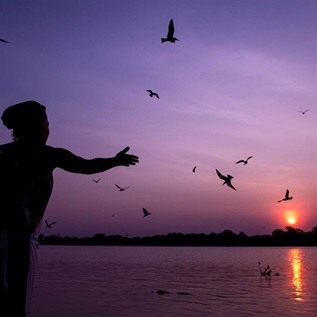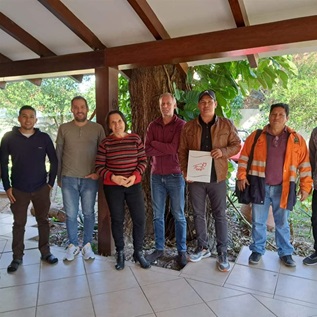Pew Latin American Fellows Are Among 'Stars of South American Science' in Nature
PEW LATIN AMERICAN FELLOWS ARE AMONG 'STARS OF SOUTH AMERICAN SCIENCE' IN NATURE
The journal Nature published a special issue dedicated to the “Science Stars of South America” on June 12, 2014, highlighting Pew’s Latin American fellows in the biomedical sciences as key contributors to the growth of scientific enterprise in Latin America.
In an essay titled “Fellowships: Turning brain drain into brain circulation,” the program’s national advisory committee chairman Torsten Wiesel recounted the history of the fellows program, which encourages talented Latin American scientific investigators to return to their home regions after training in the United States. Wiesel, who won the 1981 Nobel Prize in Physiology or Medicine and is president emeritus of Rockefeller University, helped launch the program with Rebecca Rimel, Pew’s president and CEO, in 1991.
The piece also featured a narrative called “Bringing Science Back Home” written by 1996 Latin American fellow Jimena Sierralta, an associate professor at the University of Chile who served on the fellows’ national advisory committee—which selects the fellows from applicants vetted by regional nominating committees—for six years. Sierralta described how the support she received from Pew during her postdoctoral training at the University of California, San Diego helped her to establish herself in the field of neurology and to set up her laboratory in Chile.
Wiesel’s and Sierralta’s perspectives—along with a description of efforts to improve science in Brazil from Sidarta Ribeiro, a 2001 Latin American fellow and the Brazilian regional nominating committee chair—showcased Pew’s role as a major contributor in the effort to improve science in Latin America. Wiesel wrote: “Like a seed planted in a fertile soil, the Pew programme has flourished over the past 20 years. The plant will no doubt continue to grow and to support its ecosystem.
Related: “Fellowships: Turning brain drain into brain circulation” (Nature.com).
Learn more about the Pew Latin American Fellows Program in the Biomedical Sciences.











